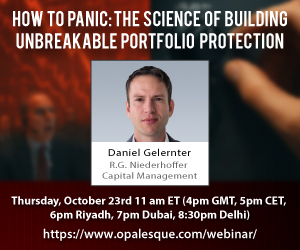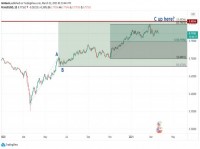|
|
The AAOIFI framework indicates that sukuk can be traded only if the issuer
transfers real ownership to the sukuk holders. However in practice there is no
real transfer of ownership taking place. Consequently, sukuk are traded based on
capital guarantee rather than market value of underlying assets. Why do you
think there is a deviation between actual practices and AAOIFI rules to trade
sukuk?
It is not accurate to say that there are no real transfers in practice. The
issue is between transfer or legal rights and beneficial rights. The former
constitutes the transfer of the asset outright to the SPV and thus giving the
investors the right on recourses by way of the assets. The latter does not as
the beneficial rights ends as soon as the contract ends. Meaning that when the
lease contract, say defaults, the beneficial rights end, thus giving the
investors without recourse on the tangible asset. Actually this is not a Shariah
issue. The whole exercise must be looked at upon the distinction whether it is a
credit issue or otherwise.
Wan A R Kamil
Director, First International Consulting Group
Former Islamic Capital Market Consultant for the Securities Commission Malaysia
In our 2001 survey of perceptions of market participants in Islamic financial
industry (Risk Management: An analysis of issues in Islamic financial industry)
we got a surprising but revealing response. The major Islamic banks in our
survey reported that, with respect to Islamic financial contract, for them the
banking book market risk is more serious than the credit risk. Surprising -
because, banking book market risk is never understood to be more important as
market risk is a trading book phenomenon. Surprising -also, because market risk
is never seen more serious as compared to credit risk. But in Islamic finance it
is! That means the participants of the industry - including originators, issues,
rating agencies, arrangers and investors are averse to market risk more than to
credit risk. So naturally, the issues should be based on credit risk and not
market risk. I am sure this is the main reason that explains the phenomenon. Add
to it the actual size of interest rate derivatives in the market - 75% of all
derivatives and 400 trillion US$ - interest rate swaps to manage interest rate
risk or rate of return risk euphemistically, which are not available if issues
are to be issued based on market risk (asset-backed).
Professor Tariqullah Khan
Professor of Islamic Finance
Qatar Foundation
AAOIFI recognises two different types of ownership; legal ownership and
constructive ownership. It is important to bear in mind the concept of
constructive or beneficial ownership when looking at jurisdictions where
transfer of legal title is difficult to perfect or where the asset in question
attracts taxes or other burdens when looking to transfer it. Rather than there
being a deviation from the AAOIFI guidelines, local differences have dictated a
growth in the sukuk market along certain terms. For example, historically, as
the majority of the early sukuk issued in the GCC were property based, local GCC
laws on foreign ownership of property were reflected in the sukuk assets and
thus were always going to remain a cause for concern for foreign certificate
holders.
Abdulkhaliq Elshayyal
Legal Adviser & Shariah Compliance Officer
Bank of London and The Middle East
The simple and short answer is the practicability and preferred practice of key
players. It is pointless having AAOIFI rules which are not adhered to.
Bilal Khan
Law Lecturer and Executive Director
Islamic Finance Education Council
Yes, I believe that the Sukuks are not being traded in compliance to the Shariah
Guidelines, and there is of course a deviation between actual practices and
AAOIFI rules.
Nayyar Azam Saifi
Manager Shari'ah Audit, Compliance & Advisory
United Bank Limited
In order for sukuk to be tradable in the market, there is a certainlevel of debt
(dayn) set by regulators in sukuk's asset composition (AAOIFI's Fatwa: 70%, OIC
Fiqh Academy Resolution: <50%, Dubai financial market: 10%). Why do you think
there is a difference among regulators regarding this matter? What do you think
should be an appropriate framework for composition of debt?
This is a matter of Shariah interpretation. The hadith "thuluth kathir" or one
third is a lot, has been used to set the limit. It differs from time to time and
within the same jurisdiction and by the same body as well. Such as the IDB case.
Wan A R Kamil
Director, First International Consulting Group
Former Islamic Capital Market Consultant for the Securities Commission Malaysia
For this matter you have to look at various qualifiers. They talk about
different matters no one. Those numbers that you mentioned are for investing in
stocks and shares and not for Sukuk as debt instruments. For Sukuk as debt
instruments - there is Malaysia and outside Malaysia. Outside Malaysia ALL will
fix a benchmark of 51 non-debts for making any Sukuk tradable. In Malaysia this
condition is not required meaning that even 100% debt is tradable.
Professor Tariqullah Khan
Professor of Islamic Finance
Qatar Foundation
The devil is in the detail as they say. This can only be cleared up if we were
to interview the prominent scholars for the basis of their rulings in different
forums. Having said that, the varying positions appeal to different people with
different perspectives.
Bilal Khan
Law Lecturer and Executive Director
Islamic Finance Education Council
This difference derives from varying applications of ijtihad by shariah
scholars. As with most modern issues arising out of financial transactions,
different scholars apply different degrees of reasoning and there are a number
of opinions which represent different views. It is important to bear in mind
however that these institutions are not regulators, contrary to what you
mention.
Abdulkhaliq Elshayyal
Legal Adviser & Shariah Compliance Officer
Bank of London and The Middle East
The difference among regulators is not a matter of any concern as it is due to
the market conditions and practices of the market. However, ideally there should
be a single practice round the globe the best should be 33% of debt.
Nayyar Azam Saifi
Manager Shari'ah Audit, Compliance & Advisory
United Bank Limited
|





 RSS
RSS










